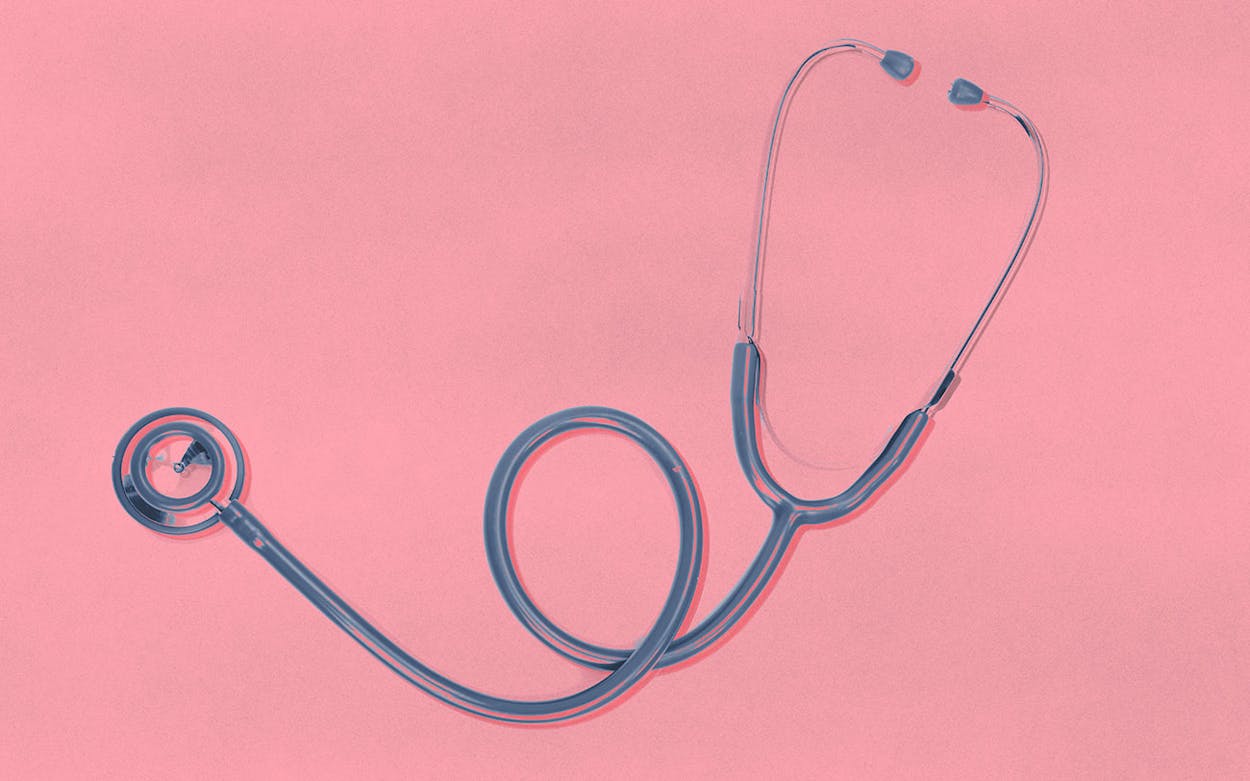In the wake of a natural disaster like Hurricane Harvey, emergency health services are a necessity for survivors—and not only for medical issues caused by the flood. Medical shelters often focus on respiratory and gastrointestinal effects from contact with floodwater, as well as mental health issues that can be exacerbated by the stress of surviving a natural disaster and its aftermath. But those affected by the storm, often evacuated far from their usual doctors, also urgently need access to healthcare beyond Harvey-related concerns.
That’s certainly the case when it comes to women’s health. “Just because natural disasters happen, that doesn’t mean that the need for abortions just goes away,” says Amanda Williams, the executive director of the Lilith Fund, an organization that helps fund abortions for Texans and advocates for better access to the procedure.
Since Hurricane Harvey hit, the Lilith Fund has pushed to make sure the storm’s survivors have safe access to abortions. Forty-four percent of their clients in 2016 were based in Houston, so in the days leading up to the hurricane, their phone lines were busy with concerned clients with appointments scheduled during the storm. After Harvey hit, they knew they had to provide additional support to its survivors. Not only did some clinics in Houston have to close down, says Williams, but now the women were facing an onslaught of other challenges that made accessing safe and timely abortions more difficult.
“Now these folks have lost their homes, they’re in shelters, they’re living off FEMA money, they don’t have transportation, they lost their jobs,” Williams says. “They didn’t have access to medication, they’re trying to take care of sick kids, literally lost their employment, because the buildings were flooded. They spent their money on survival needs, like food, during the hurricane, and gave it to friends who lost everything. It was clear that the need just became much more dire in the face of the aftermath of this natural disaster, so we began fundraising.”
On August 31, the Lilith Fund announced the Emergency Fund for Hurricane Survivors. The donations they receive for the emergency fund are used for anyone affected by Hurricane Harvey in Texas, not just those in the Houston area.
The Lilith Fund isn’t alone in their push to make sure Hurricane Harvey survivors have safe access to abortions. Whole Woman’s Health, an organization of clinics providing comprehensive women’s healthcare including abortions, announced at the beginning of the month that they would be providing women affected by Hurricane Harvey with no-cost abortions at the organization’s four Texas clinics in Austin, San Antonio, McAllen, and Fort Worth. Citing the closure of clinics in Houston and the legal barriers that already limit abortion access in Texas, Whole Woman’s Health is collaborating with the Lilith Fund as well as using their own Stigma Relief Fund to provide abortions at no cost.
Providing women with access to safe abortions after a natural disaster isn’t new for Amy Hagstrom Miller, the CEO and founder of Whole Woman’s Health. The organization offered reproductive healthcare at no cost after hurricanes Katrina, Ike, and Rita. “We know that women are the pillars of the community, and are very greatly affected by environmental disasters like this,” Miller says. “When women are displaced, they still need the same health care services.”
While the Lilith Fund has historically provided partial funding just for abortion procedures, Whole Woman’s Health covers additional fees to make the abortion truly no cost. That could mean providing funding for the rest of the procedure, lodging, transportation, and childcare, Miller says.
Williams says that since their announcement, the Lilith Fund has raised over $25,000, and provided partial funding for over 50 callers from their Harvey fund. Since announcing the initiative to provide no-cost abortions on September 1, Whole Woman’s Health has raised $15,000 through their Stigma Relief Fund and helped 74 women. Miller says they are in various stages of their process: some women have already had their abortions, and others are in the process of making arrangements for appointments with the organization’s clinics. Of the 50 callers the Lilith Fund has helped and of the 74 that Whole Women’s Health has aided, seven of them have been “co-funded” by both organizations to receive no-cost abortions, Miller says.
Most of the funding for both organizations has come from small donations from individuals. “People giving $50 here, $25 here,” Williams says. “There’s definitely been an outpouring of support from everyday people who saw this effort and understand that reproductive rights and health and justice are often overlooked in natural disasters.”
Anti-abortion group Texas Right to Life, however, says that there are no free abortions, and that the price tag comes in the form of an emotional toll women face after undergoing the procedure.
While Whole Woman’s Health has provided access to abortions after natural disasters for a decade, Miller believes that the Hurricane Harvey initiative is getting more attention because of the organization’s recent high-profile legal battles in Texas. In 2016 the U.S. Supreme Court decided in favor of the organization in Whole Woman’s Health v. Hellerstedt, ruling that two Texas provisions violated the Constitution by placing an undue burden on abortion access in the state. This year, Whole Woman’s Health is involved in two other legal battles involving abortion access in Texas. While they wait for upcoming court decisions, the organization is committed to maintaining their Harvey initiative throughout the month of September.
For the Lilith Fund and Whole Woman’s Health, they see themselves as providing a much-needed service to those displaced by the storm, working to fill the gap in health care for women after a natural disaster. “This kind of work fits into the fabric of what human rights and justice work is and abortion providers are very much in the field of human rights,” says Miller. “We’re stepping up to do our part to support the community using our expertise.”








